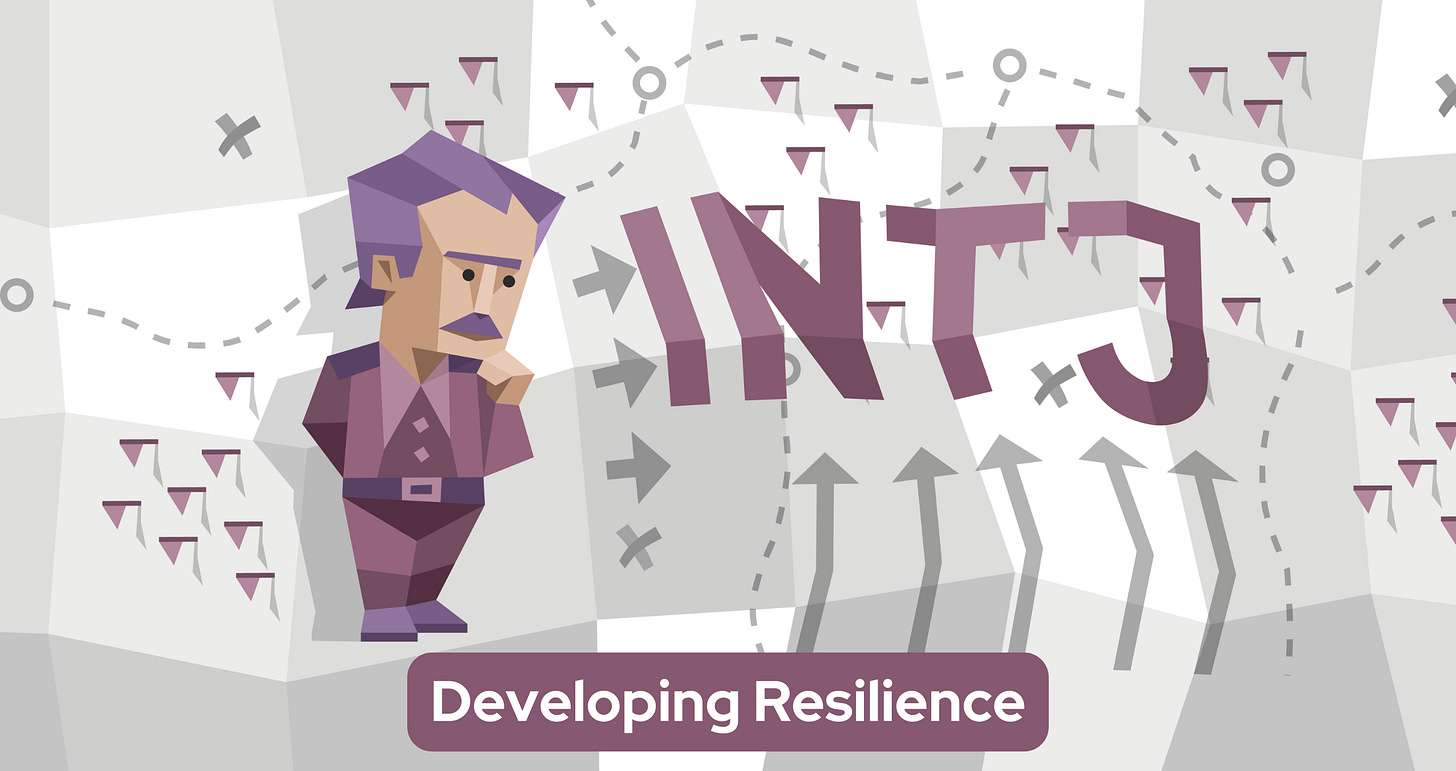Leading Resilient INTJ (Architect) Personalities
Discover how subtle leadership shifts transform Alex the INTJ’s frustration into motivation, helping him to be more resilient
How to spot INTJs (Architects):
INTJs (Architects) share the Introverted, Intuitive, Thinking, and Judging personality traits.
They see resilience as a solo endeavor. When the chips are down, they prefer to hole up alone and concentrate on finding a way forward. You may find them avoiding group discussions in favor of solitary reflection. They see resilience as an internal process of mustering their own strength and smarts. This makes them self-sufficient, but don’t mistake it for lack of stress.
Last week, you met Alex the Analyst when he had reached his breaking point and could no longer bounce back from the challenges he was facing at work. He was butting heads with his boss, feeling misunderstood, undervalued, and consequently, disengaged.
Three main factors were contributing to his lack of resilience:
A need for innovation and intellectual stimulation
A desire for autonomy and the freedom to question existing systems
A preference for logical, fact-based decision-making over emotional considerations
Today, we’re going to wind back the clock and see how things might have turned out differently if Alex and his boss had had more positive interactions in these three areas.
Analysts include four different personality types (INTJ | INTP | ENTJ | ENTP), but today, we’re going to narrow our focus and imagine Alex as an INTJ. Later this month, we’ll dive into his perspective as if he were each of the other Analyst personalities, too. (Make sure you’re subscribed to participate in the full series.)
This will help you see where you could modify your own leadership approach to better serve the INTJs on your team and help them embrace unwelcome challenges with more resilience.
Ready to dive in? Great!
Story Time: Helping Alex the INTJ Develop Resilience
Let’s set the scene:
Alex the INTJ is standing in his boss’s office, having just proposed a procedural change to remove redundancy.
*roll film*
“My boss values my ideas.”
I had resigned myself to the fact that my proposal was going to fall on deaf ears. I expected my boss to respond with a dismissive “We’ve always done it this way” or “That sounds too complicated.”
But instead, she surprised me with, “Why not? Tell me more about how you see this working.”
That made me perk up. Suddenly, I had the space to fully explain my thought process. My boss even asked probing questions that challenged me to think deeper and refine my proposal. In the end, she didn’t promise to implement my idea right away, or ever, but she did say she would consider it. And after asking good questions and forcing me to think it through even better, I believed she truly would.
By giving my ideas serious consideration, my boss showed me that setbacks weren’t final, and that the value of my contributions wasn’t solely tied to their immediate implementation. Over time, this approach helped me develop a thicker skin. Instead of feeling defeated when an idea wasn’t immediately accepted, I began to see each interaction as an opportunity to hone my thinking. I found myself more willing to bring up new ideas, even in challenging situations, because I knew they would be given fair consideration.
“My boss gives me freedom.”
Keep reading with a 7-day free trial
Subscribe to Leadership by 16Personalities to keep reading this post and get 7 days of free access to the full post archives.



